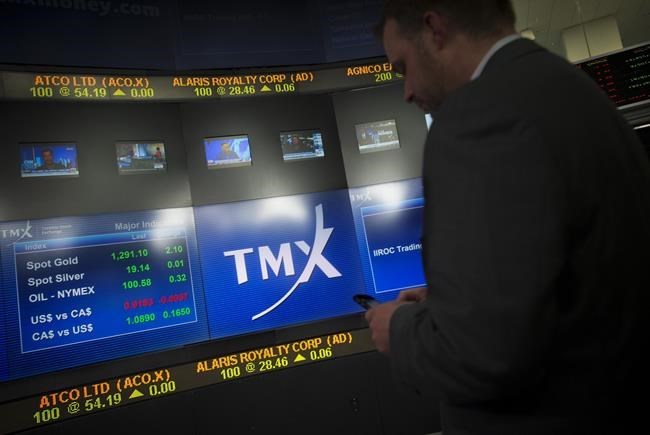TORONTO — North American stock markets were weaker for at least a third-straight day over concerns about the Delta variant and the potential scaling back of monetary stimulus in Canada and the U.S.
Investors remained anxious about the impact of rising COVID-19 infections on economic growth and demand for commodities such as energy.
A new pandemic low in first-time U.S. benefit claims also raised anticipation that the U.S. Federal Reserve might pull back its stimulus earlier than expected.
The number of Americans seeking unemployment benefits fell last week to 310,000. That's below expectations and is approaching the pre-pandemic level of about 225,000.
"Because things are mending on the labour front, the U.S. Federal Reserve could move sooner than anticipated to scale back some of its COVID pandemic accommodative monetary policies," said Anish Chopra, managing director with Portfolio Management Corp.
In a speech Thursday, Bank of Canada governor Tiff Macklem said the central bank plans to increase interest rates before it reduces the size of government bond purchases.
"So you are getting the talk of reducing stimulus that was put in place to get the economy through the coronavirus and you're starting to see that whether it's Canada or the U.S.," Chopra said in an interview.
The S&P/TSX composite index closed down 36.52 points to 20,705.27 a day before employment numbers are released for August.
In New York, the Dow Jones industrial average was down 151.69 points at 34,879.38. The S&P 500 index was down 20.79 points at 4,493.28, while the Nasdaq composite was down 38.39 points at 15,248.25.
Eight of the 11 major sectors of the TSX lost ground, led by consumer staples and industrials.
Staples lost 1.2 per cent as shares of Empire Co. Ltd. lost 3.4 per cent after it reported lower first-quarter profits.
Industrials fell 1.1 per cent as shares of Canada's two largest railways moved lower. Canadian Pacific Railway Ltd. decreased 3.9 per cent while Canadian National Railway Co. was down 2.1 per cent.
Offsetting the losses was a 2.4 per cent gain by Air Canada even though U.S. airlines tempered investor expectations about earnings over the next number of months because of COVID-19.
Materials was down even though metals prices rose.
The December gold contract was up US$6.50 at US$1,800.00 an ounce and the December copper contract was up 5.25 cents at US$4.29 a pound.
Technology was the leading sector, gaining nearly one per cent as shares of Lightspeed increased 6.2 per cent in a reversal from Wednesday's movement.
Energy was also higher as natural gas prices moved above US$5 per mmBTU for the first time in more than seven years.
The October natural gas contract was up 11.7 cents at US$5.03 per mmBTU and the October crude oil contract was down US$1.16 at US$68.14 per barrel.
Shares of Tourmaline Oil Corp. increased 1.9 per cent on the natural gas gains while Suncor Energy Inc. rose 1.4 per cent.
The Canadian dollar traded for 79.03 cents US compared with 78.89 cents US on Wednesday.
This report by The Canadian Press was first published Sept. 9, 2021.
Companies in this story: (TSX:TOU, TSX:SU, TSX:LSPD, TSX:CNR, TSX:CP, TSX:AC, TSX:EMP.A, TSX:GSPTSE, TSX:CADUSD=X)
Ross Marowits, The Canadian Press



